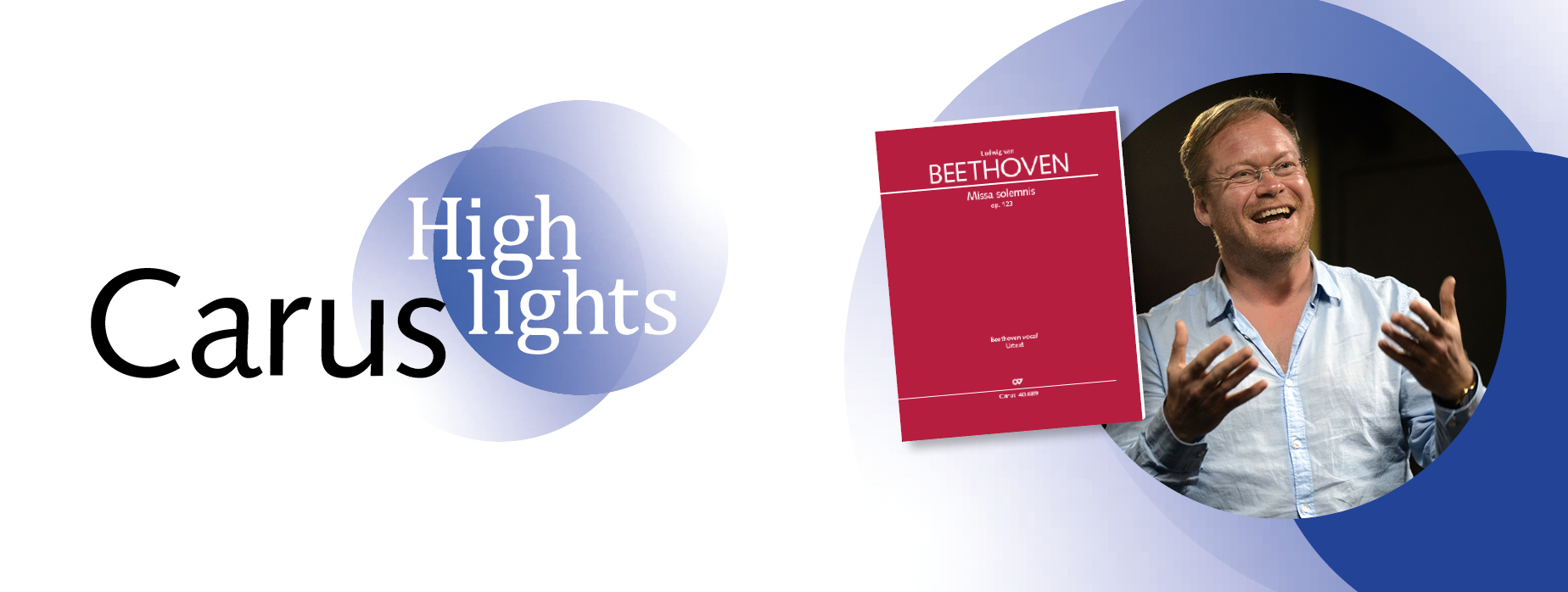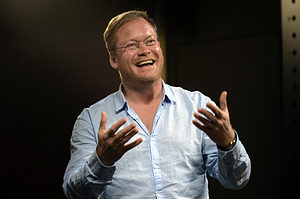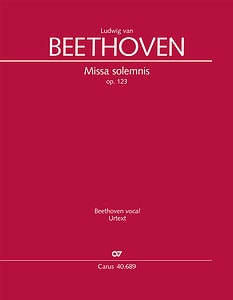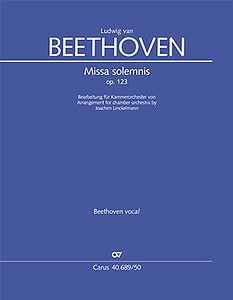“The pinnacle of choral-symphonic works”
Jan Schumacher and Beethoven’s “Missa solemnis”
50 years of Carus – 50 years of passion for choral music, which we share with you. In the Carus anniversary year, each month in the CARUS blog prominent choral directors present their personal highlight from five centuries of choral music for you.
“A peak of the repertoire”, “the pinnacle of choral-symphonic works” and “the most difficult challenge for an oratorio choir”: Many superlatives have been used for Beethoven’s magnum opus, but one thing is certain – tackling the Missa solemnis is not easy, either for musicians or audiences.
The composer himself described his Missa solemnis as his greatest work. It was the result of many years study of sacred music (beginning with Gregorian chant!) and liturgical texts (and their translations), coupled with his own personal struggles with faith. We feel this intensive intellectual involvement in every measure. And as in his symphonic and chamber music, this work is completely new and unprecedented, but without entirely upsetting the genre in music-historical terms. Rather, it is a further development and elevation of the existing. Devotional grandeur in the “Kyrie”, concentrated energy and dramatic density in a compressed space in the “Gloria”, “Credo”, and “Agnus Dei”, heavenly breadths in the “Sanctus and Benedictus” – in his interpretation of the text, Beethoven juxtaposes extreme musical differences. And yet the work remains completely self-contained.
Jan Schumacher (b. 1980) has been University Music Director and Professor at the Goethe University in Frankfurt am Main since 2015, and has taught at the Akademie für Tonkunst in Darmstadt since 2019. He also conducts the Chorus of the Technical University Darmstadt and the Ensemble Camerata Musica Limburg.
Jan Schumacher works worldwide as a guest conductor, jury member, and director of master classes and seminars. He is Chairman of the Choral Advisory Panel of the Deutscher Musikrat (German Music Council), Vice-President of the International Federation for Choral Music (IFCM), and has been associated with Carus-Verlag for many years as an author and editor.
And so we come full circle to the enormous demands which Beethoven’s Missa solemnis places on the chorus, orchestra (including the conductor), and the audience: these are not the result of lack of compositional ability (how often that is said of Beethoven with regard to his treatment of the vocal parts!), but of his calculation. In the same way that performing the Missa pushes us to our limits, reflecting on our faith also takes us to our limits. It is clear that Beethoven wanted to make this directly felt by both performers and audience. Studying the Missa solemnis can be uplifting for anyone! And so Beethoven’s words, which he wrote at the top of the autograph of his score, are also fulfilled: “From the heart – may it return to the heart.”
Ludwig van Beethoven:
Missa solemnis op. 123
- Original version: Carus 40.689/00
- Arrangement for chamber orchestra
(J. Linckelmann): Carus 40.689/50









Leave a Reply
Want to join the discussion?Feel free to contribute!